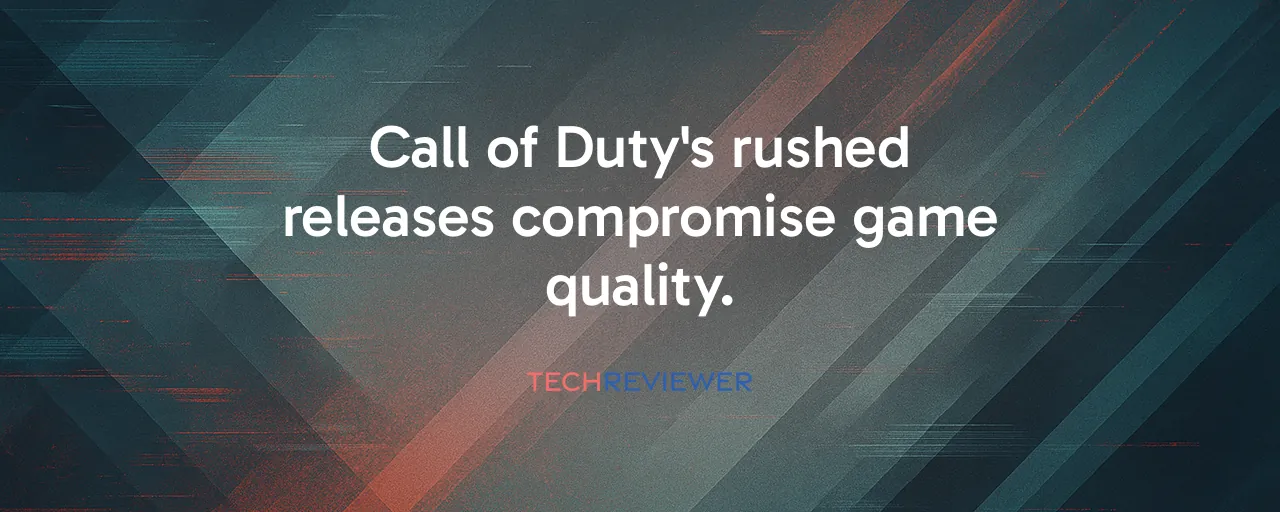A Franchise Under Fire
Call of Duty has been a gaming titan for over two decades, churning out annual releases that rake in billions. Yet, whispers of discontent have grown louder. Players and developers alike are questioning whether the series, now under Microsoft's wing after the 2023 Activision Blizzard acquisition, can sustain its breakneck pace without sacrificing quality. Glen Schofield, a former director behind the franchise's golden era, recently reignited this debate, pointing to a noticeable dip in recent titles. His comments, shared at Gamescom Asia in October 2025, highlight a broader industry tension: balancing blockbuster profits with creative excellence.
Schofield's critique isn't just a nostalgic jab. Modern Warfare 3 (2023), developed in a mere 16 months, scored a dismal 50 on Metacritic, the franchise's lowest mark. Compare that to Schofield's Modern Warfare 3 (2011), which received 12 award nominations and was nominated for Action Game of the Year. The contrast is stark, and it's not just one game. Titles like Vanguard and Black Ops Cold War, while commercially successful, haven't matched the critical acclaim of earlier entries. So, what's going wrong?
The Cost of Rushed Development
The story of Modern Warfare 3 (2023) reads like a cautionary tale. Originally planned as an expansion for Modern Warfare 2 (2022), it morphed into a full-priced release under tight deadlines. Developers worked grueling nights and weekends, despite Activision's promises to curb crunch after Vanguard's troubled production. The result? A game plagued by bugs, performance issues, and a campaign that felt half-baked. Industry analysts point to the franchise's annual release cycle, in place since 2005, as a root cause. With three studios, Sledgehammer Games, Infinity Ward, and Treyarch, juggling overlapping projects, there's little room to breathe.
Schofield's own experience with The Callisto Protocol mirrors this. After leaving Sledgehammer in 2018, he founded Striking Distance Studios to create a spiritual successor to Dead Space. But publisher Krafton pushed for an early launch in December 2022, ignoring Schofield's plea for a few more months. The game launched to mixed reviews and tanked commercially, a victim of the same rushed timelines plaguing Call of Duty. These cases underscore a hard truth: even talented teams struggle when time and pressure outweigh creative freedom.
Players Feel the Strain
The player community, millions strong across PlayStation, Xbox, and PC, isn't staying quiet. Complaints pile up about Skill-Based Matchmaking, which many argue makes casual play feel like a sweat-fest. Others grumble about pricey cosmetic bundles and a shift toward flashy, anime-inspired skins that clash with the series' gritty military roots. Black Ops 6, launched in 2024, won praise for its polish and record-breaking Game Pass numbers, but its success hasn't silenced doubts. With Black Ops 7 slated for November 2025, some players worry back-to-back releases in the same sub-series could burn out even loyal fans.
Treyarch's developers have heard the feedback. They've promised a playlist with toned-down matchmaking intensity for Black Ops 7, a nod to players craving a more relaxed experience. Yet, monetization remains a sore spot. Battle passes and premium content drive billions in revenue, but they've sparked accusations of prioritizing profits over player value. For a franchise that's sold over 500 million copies and earned $30 billion, finding a balance between engagement and fairness is no small task.
Microsoft's Big Bet
Microsoft's $69 billion acquisition of Activision Blizzard in 2023 changed the game. Call of Duty now anchors Xbox's ecosystem, with Black Ops 6's Game Pass launch drawing record day-one players but costing an estimated $300 million in traditional sales. The shift to subscriptions could ease the pressure for annual releases, giving studios like Sledgehammer and Treyarch more time to refine their work. But it's a gamble. Game Pass grew 12 percent in late 2024, largely thanks to Call of Duty, yet retaining subscribers beyond launch hype remains tricky.
On the flip side, the franchise's technical strides can't be ignored. Modern Warfare 2019 set a high bar with its overhauled engine, ray tracing, and immersive audio, selling 41 million copies. Black Ops 6 built on that with cloud gaming and cross-platform play, keeping Call of Duty competitive. Still, industry veterans argue that shiny tech can't mask creative stagnation. Schofield's point resonates here: without room for bold ideas, even cutting-edge visuals lose their edge.
A Path to Redemption?
The Call of Duty machine isn't slowing down, but it's at a crossroads. Developers face burnout, with unionization efforts at studios like Raven Software highlighting demands for better conditions. Microsoft's labor neutrality agreements signal progress, but systemic issues like crunch persist. Industry analysts see potential in collaboration, standardizing tools across studios, sharing resources, or even rethinking the annual release model. If subscription revenue from Game Pass proves sustainable, it could fund longer development cycles, letting quality catch up to profits.
Players, developers, and Microsoft all want Call of Duty to thrive. The franchise's ability to adapt, balancing innovation with its core identity, will decide its future. Black Ops 7's launch looms as a test. Can Activision deliver a hit that quiets the skeptics? Or will the cycle of rushed releases and player frustration continue? The answer lies in giving studios the time and freedom to create, not just churn out the next billion-dollar title.
